Core faculty members are comprised of faculty from affiliated departments who serve as liaisons between MNLEND and the academic departments that participate in LEND.

Audiology
Kerry Witherell, Au.D., CCC-A, is the Director of Clinical Programs in Audiology in the Department of Speech-Language-Hearing Sciences, and a licensed audiologist in the state of Minnesota. She joined the U of MN in 2014 and since that time has been an integral member in the interdisciplinary team at the U of MN Cleft Palate and Craniofacial Clinic which provides services to pediatric patients. She provides community-based audiology services for preschool aged children through the Early Children Special Education and Headstart programs and adult services through the Phillips Neighborhood Clinic. Prior to joining the U of MN, she worked as a hospital-based audiologist in Seattle, WA as a member of their pediatric and adult Cochlear Implant team. She is passionate about patient care and ensuring children and their families get the education and support they need and deserve, particularly in the interdisciplinary clinic model.
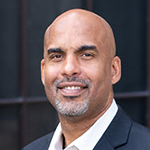
Cognitive Neuroscience
Damien Fair is a cognitive neuroscientist advancing our understanding of brain functioning during development in typical and atypical contexts. Combining technical advances in functional magnetic resonance imaging (fMRI), advanced mathematical techniques, and expertise in psychology and neuroscience, Fair investigates resting state brain connectivity—the brain’s intrinsic or spontaneous neural activity.
Fair has been able to more precisely observe how distinct regions in the brain communicate with each other and how this communication evolves at different stages of development, from infancy to adolescence. He employs graph theory to map the connectivity and the strength of those connections while the brain is in a resting state. He has also led an emerging interest in characterizing or mapping individual brains. These “connectotypes” or “functional fingerprints” vastly improve upon the previous models of typical and atypical brain connectivity built with aggregated data from multiple individuals. Fair’s functional fingerprints are also improving understanding of atypical development such as that in ADHD and Autism Spectrum Disorders (ASD). Traditionally, causal models of psychopathologies have focused on identifying a single core dysfunction, but such models cannot account for marked differences in both brain function and behavior across a population. Fair and collaborators are building computational models to identify subgroups of manifestations of ADHD and ASD that have unique causal pathways; this work has the potential to inform the design of more personalized therapeutic protocols.
More recently, Fair is investigating the effects of early life environmental influences (such as maternal stress, inflammation, or depression during pregnancy) and childhood experiences (such as participation in sports, sleep habits, and social media) on resting state networks in human and animal models. These findings have implications for how developmental psychologists and cognitive neuroscientists think about brain development and how we prevent emerging psychopathologies across the lifespan. All of this work requires precise measurements obtained with functional and structural MRI with children; however, any movements during the scan can distort the data. Fair and a colleague built a software platform called Frame-Wise Integrated Real-Time Motion Monitoring (FIRMM) to make scanning more entertaining for patients and to enable scanner operators to correct for motion-distorted data in real time. FIRMM is being used in research labs around the world, and they are deploying it for use in clinical settings.
In addition, Fair is a generous mentor and collaborator and has built programs to expose underrepresented students to scientific research and STEM-related careers and increase faculty representation of underrepresented minorities. Through integration of disparate streams of research, Fair contributes to a deeper understanding of brain development with the promise of devising new therapies for treatment of neurological disorders. MNLEND is honored to have him join as a new core faculty member representing the field of Neuroscience.
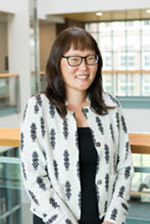
Genetic Counseling
Heewon Lee (she/her) is an assistant professor, assistant program director of the Genetic Counseling Graduate Program, and the director of inclusive curriculum and teaching. She received her Master’s Degree from the University of Minnesota in genetic counseling and worked as a clinical genetic counselor in oncology. Her research interests include gynecologic oncology, adoption, and Direct-to-Consumer Genetic Testing (DTC-GT). Heewon is a member of the NIH’s Inter-Society Coordinating Committee for Practitioner Education in Genomics (ISCC-PEG) DTC-GT working group, the Minnesota Genetic Counselors Association’s Justice, Equity, Diversity and Inclusion (JEDI) committee, the Minority Genetic Professionals Network, and the National Society of Genetic Counselors.
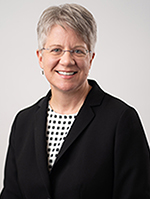
Nursing
Wendy Looman, PhD, APRN, CPNP-PC, is a Professor in the School of Nursing at the University of Minnesota. Her research, teaching and practice are focused on the promotion of family health in the context of childhood chronic conditions. Dr. Looman studies family interventions to improve quality of life for children with medical complexity, with an emphasis on keeping family goals at the center of care coordination across multiple systems of care. She advises and teaches undergraduate and doctoral students in nursing and is certified as a Primary Care Pediatric Nurse Practitioner. Dr. Looman co-developed the Position Statement on Planetary Health and Family Health for the International Family Nursing Association and serves on the editorial board of the Journal of Family Nursing.
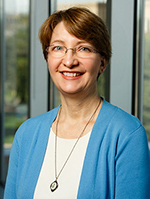
Nutrition
Dr. Jamie Stang's research interests include the role of nutrition in the prevention of poor maternal-fetal outcomes and in the prevention of obesity risk factors during early childhood utilizing a positive deviance framework; all of her work is completed with a focus on the social determinants of health and nutrition and targets marginalized, under-served and/or rural MCH populations. She is also very involved in Public Health Nutrition and MCH workforce development. She teaches within the Public Health Nutrition and Maternal and Child Health programs at SPH. She is also the director of the Leadership Education and Training Program in Maternal and Child Health Nutrition and the Center for Leadership Education in Maternal and Child Health.
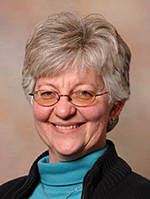
Occupational Therapy
Peggy Martin, PhD, is Program Director of the Masters in Occupational Therapy, Medical School, and a licensed Occupational Therapist in Minnesota and Wisconsin. Her practice focuses on rehabilitation of childhood disorders in all practice settings including community-based school, outpatient, and inpatient medical settings; management; program development; human resource development. Dr. Martin's research interests include: cultural competency, adult education, clinical reasoning, development of expertise, childhood and disability, movement analysis, sensory integration, substance use screening.
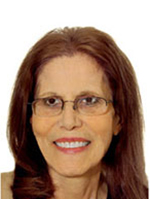
Pediatric Dentistry
Soraya Beiraghi, DDS, MS, MSD, is Professor, Director, Division of Pediatric Dentistry, Department of Developmental and Surgical Sciences, School of Dentistry. She has been a staff member of craniofacial programs for the past 20 years at the U of MN. She is Director of the IADR/ AADR Craniofacial Biology Section as well as a member of the Society of Craniofacial Genetics and ASHG. She has been trained as NIH/NIDCR Fellow at Indiana University School of Medicine, both in medical and molecular genetics. Her primary research focus is in the area of craniofacial anomalies; specifically, she is currently working on genotype-phenotype correlation and underlying molecular mechanisms.
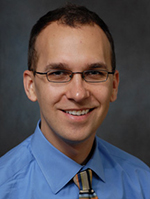
Pediatrics
Andrew (Andy) Barnes, MD, MPH, is an Assistant Professor of Pediatrics at the University of Minnesota Medical School, where he directs the fellowship program in Developmental-Behavioral Pediatrics. Dr. Barnes’s clinical work with children and families focuses on helping children gain mastery of their own mind-body interactions. Some of the ways that he helps children become more competent in this regard includes teaching them how to use biofeedback, mindfulness, and self-hypnosis to help themselves better regulate their own thoughts, feelings, and actions. Dr. Barnes’s research focuses on promoting resilience in children under stress, and on the interplay between behavior and biology. His current work focuses on the health and self-regulation of children growing up in homeless families. Dr. Barnes also enjoys teaching pediatric trainees about self-regulation and the fundamentals of early child development and behavior and helps direct professional trainings in pediatric clinical hypnosis. He frequently presents and teaches on these topics at local and national symposia and conferences.
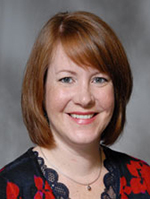
Psychology
Amy Esler, PhD, is a psychologist in the Autism Spectrum and Neurodevelopmental Disorders Clinic and directs the Fragile X Clinic. She is an Assistant Professor in the Department of Pediatrics. She joined the U of M in 2008 and is a member of an interdisciplinary team that conducts comprehensive evaluations for ASD. Dr. Esler specializes in early screening and diagnosis of ASD and is interested in the interaction between culture, diagnostic practices, and access to services. She is a certified trainer on the ADOS2 and ADI-R and has trained researchers from around the world.
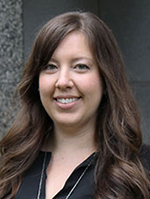
Psychology
Rebekah Hudock, PhD, is a Pediatric Neuropsychologist and an Assistant Professor in the Department of Pediatrics. She received her PhD in school psychology from Indiana University and completed her pre-doctoral psychology internship at the University of Tennessee Health Science Center. She completed a post-doctoral fellowship at Cincinnati Children’s Hospital Medical Center, where her training specialized in autism spectrum disorders (ASD) and neurodevelopmental disabilities. She is licensed as a psychologist through the Minnesota Board of Psychology and also holds certifications as a school psychologist in MN and a Nationally Certified School Psychologist (NCSP). Dr. Hudock’s research focuses on services for individuals with ASD and other neurodevelopmental disorders and their families. Within this research area, her interests include social skills intervention; services for children with ASD and co-occurring mental health diagnoses; socialemotional development; parenting stress; school-based services, and transition services. Clinically, Dr. Hudock specializes in assessment and intervention for children with ASD and other neurodevelopmental disabilities. She conducts comprehensive diagnostic evaluations and leads treatment services for children with ASD and their families.
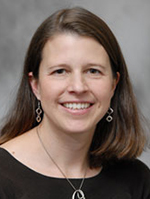
Psychology
Robin Rumsey, PhD, is a Pediatric Neuropsychologist and Assistant Professor in U of M’s ASD and NDD Program. She is a neuropsychologist and member of an interdisciplinary team that conducts comprehensive evaluations for possible autism spectrum disorder. Dr. Rumsey’s clinical interests include early identification of autism spectrum disorders, evaluation of the neuropsychological functioning of children and adolescents with ASD, and facilitation of care coordination between caregivers, providers, and educators. Her research interests pertain to early identification of children with ASD.
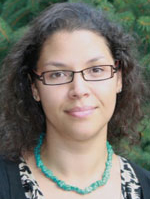
School Psychology
Amanda Sullivan, PhD. Dr. Amanda Sullivan's research focuses on identifying education and health disparities among children from culturally and linguistically diverse backgrounds, understanding equity in and effectiveness of the educational and health services they receive, and how ethics and law shape practices and students' experiences. She is particularly interested in elucidating disparities in the educational treatment and outcomes of students with and at-risk for disabilities and identifying malleable factors related to outcomes in order to inform policy and practice to better support students’ educational needs. Much of her work entails secondary analyses of large-scale datasets that allow for population estimates of students’ characteristics, experiences, and outcomes.
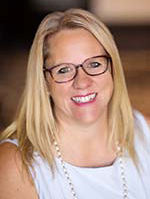
Social Work
Traci LaLiberte, PhD, is the Executive Director of the Center for Advanced Studies in Child Welfare in the School of Social Work at the University of Minnesota. She focuses on child welfare practice and policy with special interests in comprehensive family assessment, system change, permanency for children in out of home care, and work with children and parents who have disabilities. She has served as principal investigator on studies of comprehensive assessment, evidence-based practice in treatment foster care settings, child welfare leadership, and the intersection of child welfare and disability. Dr. LaLiberte is an active member of the child welfare community, both locally and nationally. She participates in a variety of service activities, including the MSW Redesign Steering Committee, the School of Social Work’s Consultative Committee, the Department of Human Services’ Supervisor Initiative Leadership Team, and outside evaluation advisory boards.
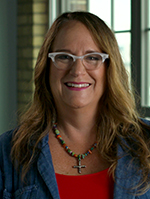
Social Work
Amy Hewitt, PhD, MSW, is director of the Institute on Community Integration (ICI), A University Center for Excellence in Developmental Disabilities (UCEDD): Dr. Hewitt serves on doctoral and master’s committees for students across a wide variety of academic and professional departments. Her responsibilities within the UCEDD include outcome and data reporting on the effectiveness of the UCEDD training program and post training leadership roles of ICI Fellows. She also directs several federal and state research, evaluation and demonstration projects in the area of direct support staff work-force development and community services. She has an extensive background and work history in intellectual and developmental disabilities and has worked in various positions over the past 29 years. Dr. Hewitt lives with an adult family member who has a diagnosis of autism and for whom she helps coordinate Consumer Directed Support Services through Minnesota’s Home and Community Based Waiver Services.

Special Education
Frank Symons, PhD, research emphasizes understanding the severe behavior problems of children and adults with special needs, primarily those with developmental disabilities and emotional or behavioral disorders. For these two groups, much of his research has focused on self-injurious behavior and classroom aggression, respectively. The majority of his research has been observationally based, theoretically grounded in behavioral principles, and driven by a commitment to meaningful, functional outcomes. He has two current specific areas of interest. One is the development, assessment, and treatment of problem behavior among children and adults with a range of neurodevelopmental and emotional/behavioral disorders. The other is the problem of pain among children and adults with significant cognitive impairments and associated developmental disabilities. Related areas of interest include observational research methods.
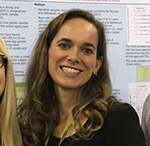
Speech Language Pathology
Lizbeth (Liza) Finestack, PhD, describes her long-term research aim to identify efficient and effective language interventions for children and adolescents with neurodevelopmental disorders, including children with primary language impairment, Down syndrome, fragile X syndrome, or autism spectrum disorder. She has built a research program focused on developing new child language intervention techniques, better understanding the language profiles of children and adolescents with differing neurodevelopmental disorders, and measuring intervention outcomes of individuals with different language and cognitive profiles. She also runs the Finestack Child Language Intervention Lab
Guest and community faculty
MNLEND invites a number of community and academic faculty who are not part of the core faculty to provide guest lectures and other learning opportunities for Fellows. These instructors are some of the most valuable teachers in the LEND year.
Faculty-Mentors
MNLEND also utilizes the teaching, coaching, and mentoring capabilities of Faculty-Mentors. Faculty-Mentors may come from the LEND Leadership team, Core Faculty, Post Doctorates, or the below additional partners.
Each Fellow is assigned a LEND Faculty-Mentor. Faculty-Mentor serve as the primary guide throughout the LEND Fellowship. Fellows work closely with their Faculty-Mentor in creating their Individual Leadership Learning Plan (ILLP) and meet at least bi-monthly to check in on progress.
LEND Faculty-Mentors are responsible for reviewing Fellow responsibilities, helping Fellows navigate interdisciplinary systems, and guiding Fellows' year-long projects Fellows create in the areas of research, clinical studies, community service/technical assistance or policy and advocacy. Faculty-Mentors consult with department-based academic advisers and/or Core Faculty and the Leadership team to provide a well-coordinated LEND experience.
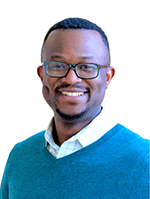
Community
Macdonald M. Metzger, M.S. is DirectCourse Quality Coordinator at the Institute on Community Integration, Research and Training Center on Community Living, University of Minnesota. He provides quality assurance for the on-line College on Direct Support curricula. He supports the DirectCourse writing team to clarify roles and responsibilities; ensures that resources and structures are in place, authors are meeting their deadlines, and keeps a calendar of content development. He also serves as a writer and reviewer of College of Direct Support materials.
Macdonald has a Master's degree in Human Services, with a specialization in Nonprofit Management and Leadership. He has over five years of hands on experience providing quality services and supports to people with disabilities in residential, vocational, and community settings. His personal connection to people with developmental and intellectual disabilities, underscored by the memory of his elder brother Amagashie, can be seen in every aspect of the passion, willingness and commitment he has shown towards advocating for programs and services that promote the quality of life for people with disability.
He has over ten years of work experience as a multi-media journalist. Previous employers include, Lutheran Social Service of Minnesota, MN Department of Human Services/MSOCS, Catholic Charities New York City, and the United Nations Mission in Liberia (UNMIL Radio) as a Broadcast Journalist.
Macdonald has also consulted and volunteered for various local and international nonprofit organizations including the International Center for Transitional Justice (New York/Liberia Program), Afrobeat Radio (WBAI 99.5 FM New York), and KFAI 90.3 FM (Minneapolis).
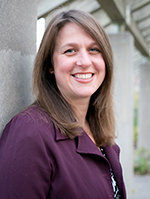
Early Screening, Intervention, and Prevalence
Jennifer Hall-Lande, PhD, is a Research Associate with the Institute on Community Integration (ICI). She is currently CDC’s Act Early Ambassador for Minnesota. Dr. Hall-Lande’s principal research and community outreach activities have been focused on screening, assessment, and interventions for children at risk for neurodevelopmental disabilities. Additional areas of focus have been ASD prevalence rates in diverse populations and policy issues around children and adult ASD waivers. Further, Hall-Lande has a focus on outreach to culturally and linguistically diverse communities with an end goal of increasing screening rates and reducing the age of diagnosis for children from culturally and linguistically diverse communities in Minnesota.
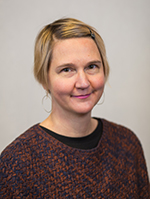
Family
Rebecca Dosch Brown serves as a MNLEND faculty-mentor under the Family discipline. She also directs MNLEND data analyses, reporting and quality improvement (QI) efforts, especially in equity and inclusion. Rebecca further directs the UMN Disability Policy and Services graduate certificate program and leads its core course, OLPD 5356.
Her larger ICI role is as an interdisciplinary education director. In this role, she helps develop interdisciplinary courses and spurs innovative research and training collaborations with UMN campus and community partners.
Rebecca came to ICI in 2015 after 20+ years in higher education as a lecturer, teacher trainer, editor, and adviser both overseas and stateside. She is currently a PhD candidate in the UMN Humphrey School of Public Affairs, with a focus on youth policy at the intersection of race and disability. She is also the parent and active ally of her adult son who has a diagnosis of autism. Her work goal is to co-design and participate in transformative anti-ableist and anti-racist efforts, so as to build a more inclusive and just world for all.
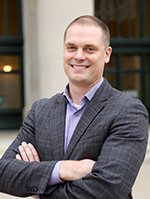
Human Centered Design + Leadership
Jess Roberts leads the CULTURE OF HEALTH BY DESIGN, an affiliated initiative of the Minnesota Design Center (University of Minnesota, College of Design). In this role, Mr. Roberts offers Human Centered Design (HCD) expertise, guidance, applied learning, and on‐going support to healthcare organizations, government agencies, non-profits, and communities looking for new ways to approach persistent and complex problems, with an emphasis on co-design and shared power structures. Mr. Roberts is currently an Affiliate Faculty member at the University of Minnesota, School of Nursing and School of Public Health where he leads the development and delivery of cross-disciplinary HCD and co-design curriculum.
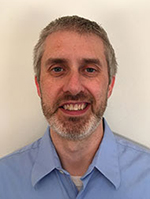
Pediatrics
Joshua Chapman, MD, was an internist and pediatrician in Perham, Minnesota for 8+ years before returning to the University of Minnesota this summer. He is currently in his first year of three training to specialize in developmental and behavioral pediatrics. Through MNLEND Josh hopes to build on his experiences in rural primary medical care and partner with others toward improving the access and quality of interdisciplinary care related to behavioral health in greater Minnesota.
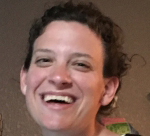
Self-Advocacy
Katrina (Trina) Simons joined the Institute on Community Integration as a Community Program Specialist in 2017, where she now serves as an ambassador, advisor and consultant on its many existing research, training, outreach, and instructional projects and provides guidance in strategic planning. Trina has worked on a variety of projects and legislation around the areas of chronic illness and disability and quality of life. She is passionate about empowering people with developmental disabilities to make informed choices and enjoys working to promote autonomy across the lifespan. Trina is a graduate of the LEND (Leadership Education in Neurodevelopmental and Related Disabilities) Fellowship program at the University of Minnesota. She has worked as a survey interviewer on the Olmstead plan pilot survey and served on the State Rehabilitation Council and currently sits on the Region 10
Quality Council. Trina also serves as a client instructor for Physical Therapy and medical residency programs on the Twin cities campus. Most recently, Trina has been working in the Department of Pediatrics to support a web-based intervention designed to enhance self-efficacy in youth living with epilepsy.

Self-Advocacy
John G. Smith is a Research Specialist at the University of Minnesota’s Institute on Community Integration, where he translates complex research and policy data into actionable information that supports people with intellectual disabilities to take greater control of their lives. His work in knowledge translation includes developing content for Self-Advocacy Online, a website providing useful and accessible information for self-advocates. He is also involved in policy and program evaluation, research on self-determination, and measuring outcomes of home and community-based services. John assisted in developing and evaluating a self-determination training curricula for direct support professionals and led an independent evaluation of the Region 10 Quality Assurance Initiative in Minnesota, an alternative licensing system focused on the quality of supports provided based on outcomes determined by individuals with disabilities rather than minimal licensing requirements. Prior to joining ICI in 1992, John worked in providing direct support and disability advocacy for 10 years. He earned a master’s degree in social work from the University of Minnesota and a bachelor’s degree in therapeutic recreation from Minnesota State University - Mankato. John was a recipient of the Access Press Charlie Smith Award for his accomplishments in supporting the self-advocacy movement in Minnesota, and the Rose and Jay Phillips Award for his success in employment and leadership in the community.

Telehealth and Positive Behavior Supports
Jessica Simacek was a past MNLEND Post Doctoral Fellow and is now a Research Associate at ICI. Her PhD is in Educational Psychology, Special Education with a minor in Applied Behavior Analysis from the University of Minnesota. She also earned her undergraduate degree in Psychology at the University of Minnesota. During her doctoral program, Jessica worked in the Minneapolis Public Schools on implementation of multi-tiered systems of support, served as key personnel in the development and oversight of the Telepresence Behavior Laboratory, taught courses on classroom management and applied behavior analytic problem solving, and conducted studies in the areas of telehealth and communication intervention in autism and Rett syndrome. She has over 10 years clinical experience in early intensive behavioral therapy for children with autism and related neurodevelopmental disabilities, spanning home, center, and school-based settings.
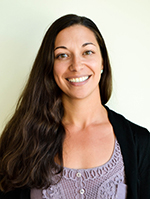
Telehealth and Positive Behavior Supports
Adele Dimian, PhD, Advanced Rehabilitation Research and Training (ARRT) Fellow at ICI. Adele's research focus is on the early development of self injurious behavior among young children at risk for and with I/DD. More specifically, she is interested in identifying the early risk factors for developing self- injury. She is also interested in the assessment of challenging behavior and providing support for families and providers throughout Minnesota via telehealth.
Transition
To be decided






 FIND OUT HOW YOU CAN
FIND OUT HOW YOU CAN